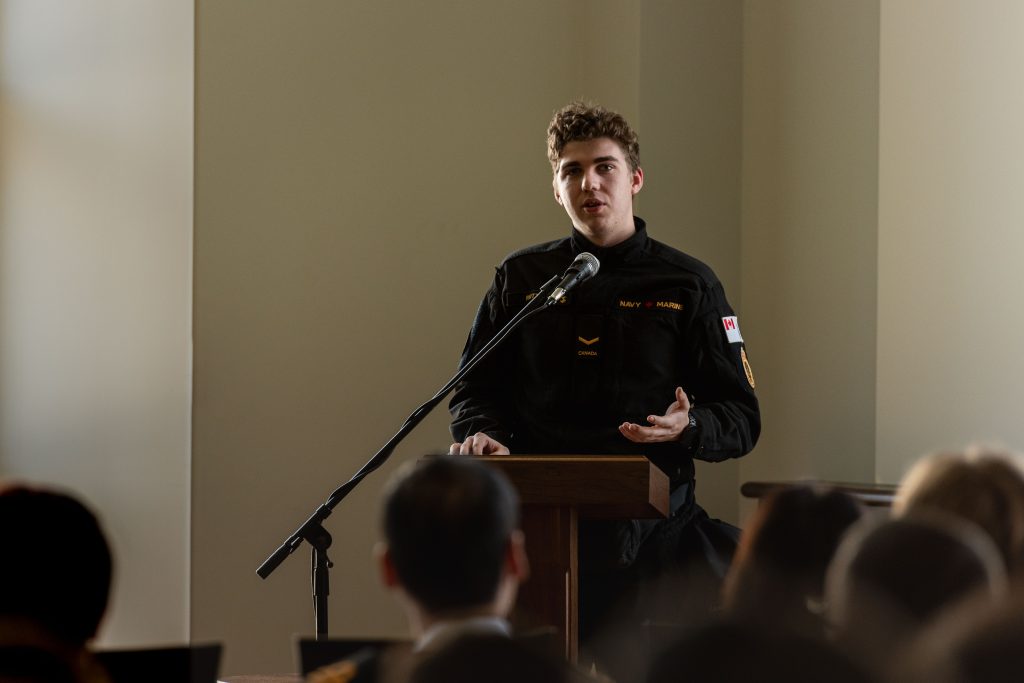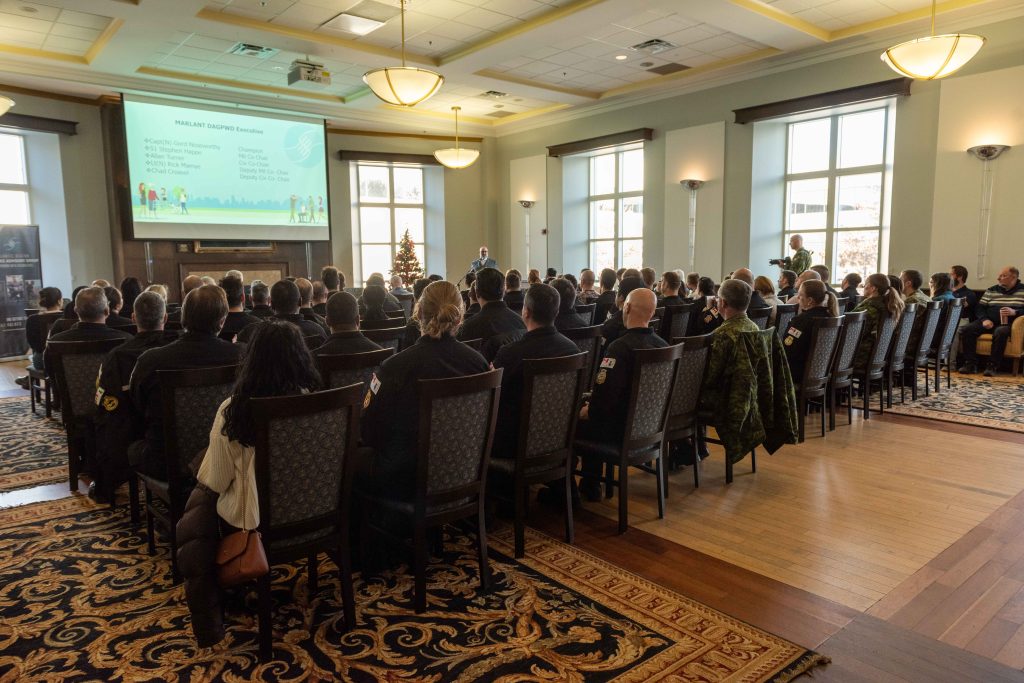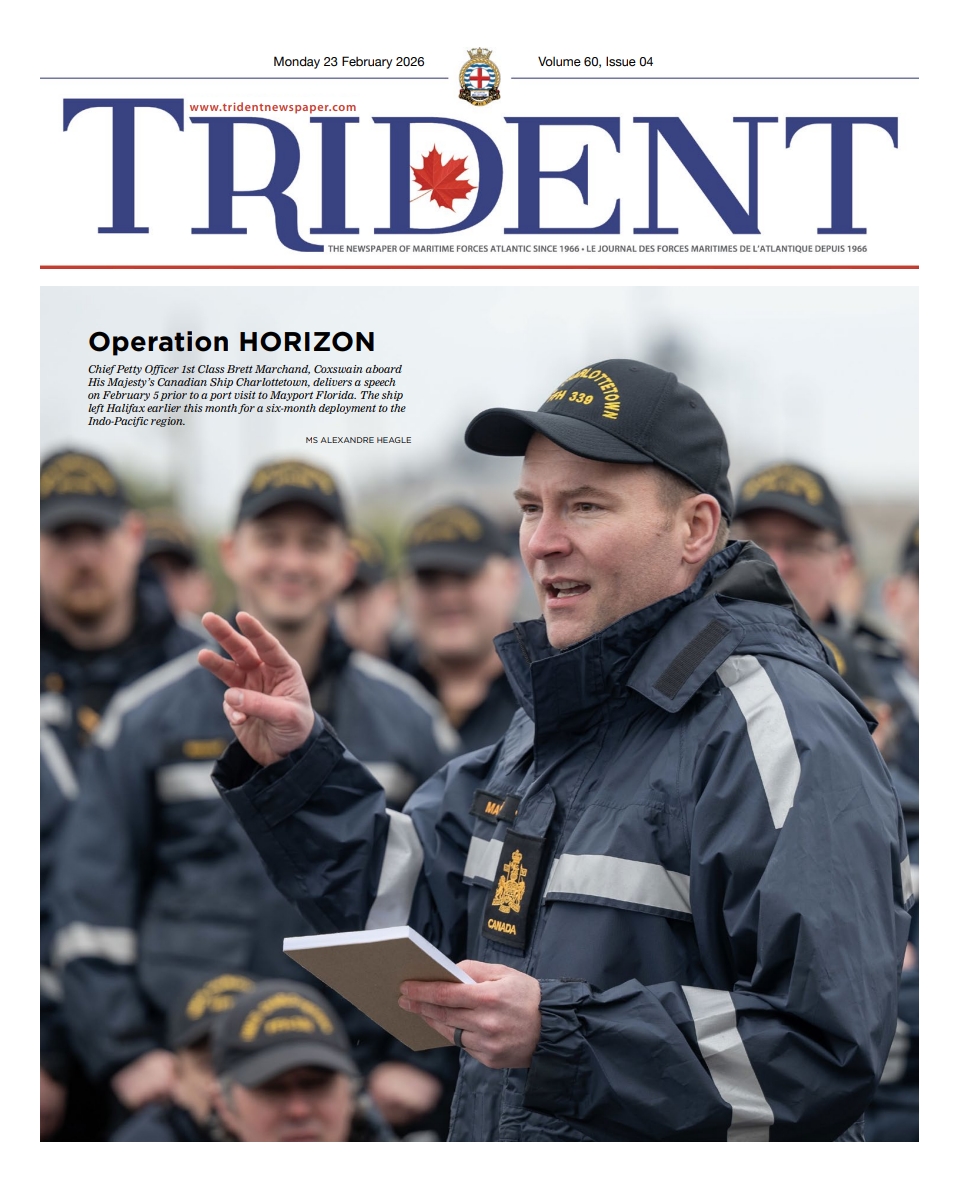
CPL MORGAN LEBLANC
Hidden disabilities and caregiver struggles focus of IDPD discussion panel
By Nathan Stone,
Trident staff

CPL MORGAN LEBLANC
The triumphs and challenges of defense community members with disabilities, as well as those who provide care, were the subject of a panel discussion marking the International Day of Persons with Disabilities (IDPD) at Canadian Forces Base Halifax on December 3.
The Halifax Defense Advisory Group for Persons with Disabilities (DAGPWD) organized the discussion in the Juno Tower Ballroom. The panelists were drawn from serving and retired Canadian Armed Forces (CAF) members, civilian defense workers and partners from community organizations.
The event aimed to empower those panelists with disabilities to tell their own stories. Most of the speakers had “hidden” disabilities, meaning they are not displayed outwardly on the body.
DAGWPD member Chad Creaser, who has hidden disabilities, was diagnosed with ADHD and Autism at 42. He said that people with hidden disabilities need support like those with visible disabilities and that hidden disabilities are common.
“So many people with hidden disabilities are around you all the time.”
Speaker Sailor First Class (S1) Sidney Riutta revealed he has a hidden disability after suffering a brain injury following a car collision in 2022.
S1 Riutta awoke in the hospital two days after the collision with serious brain damage. He was hospitalized for three weeks and diagnosed with Post Traumatic Epilepsy. Later he suffered a seizure that erased six months of memory.
Since then, he has had to come to terms with the changes in how he perceives the world and in how his brain processes information.
He said that dealing with his injury has made him “more open and empathetic,” to those around him.
Due to his injury, S1 Riutta will eventually be medically discharged. Before that happens, he hopes to achieve the rank of Master Sailor. He keeps a positive attitude and wants others to know that they can overcome the challenges of disabilities.
“You can get through anything… I don’t regret what happened, I wouldn’t trade my life for anything,” he said.
MARLANT DAGWPD Civilian Co-Chair Allen Turner spoke on the importance of caregivers for people with disabilities and the need to recognize and support them. He noted that one in three workers in Canada are also caregivers.
Lieutenant (Navy) (Lt(N)) Rick Mamye, MARLANT DAGPWD Deputy Military Co-Chair, is a caregiver and shared his experience as a father of a child with disabilities while serving as a Royal Canadian Navy officer. His son lost his vision and some of his fine motor skills due to a yet undiagnosed health issue.
He described the difficulties his family has faced in managing his deployments alongside constant medical appointments for his son. Sharing that while on deployment aboard His Majesty’s Canadian Ship Montréal in 2023, his son was removed from school due to a support worker strike, causing his family stress and worry.
“It’s a drain on your emotions.”
Lt(N) Mamye said there is stigma attached to caregivers in the military asking for accommodation when it comes to postings and deployments, and he encouraged senior officers to recognize the struggles that caregivers are facing.
Speakers from the Office of Disability Management, Tetra Society, Blind Sports Nova Scotia and Canadian Forces Health Service Centre (Atlantic) shared an overview of the services that they provide and their individual experiences as either people with disabilities or caregivers.
Closing the event, Lt(N) Mamye called upon those in attendance to consider the viewpoints shared by the panelists and think on how they can help create a more inclusive environment for those in their lives who live with disabilities.
“Moments like these are all about educating ourselves to remove barriers for others.”






